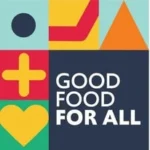

COVID-19 has caused massive disruptions to almost every aspect of our food systems, making the invisible visible. On Tuesday 21 July, Ceres2030 and the SDG2 Advocacy Hub convened a virtual Webinar, drawing on the new hunger numbers released in the 2020 State of Nutrition and Food Security in the World and costing from “What would it cost to avert the COVID-19 hunger crisis?” to drive a conversation on greater equity and the path to delivering good food for all.
The event started with a diagnosis of the problem of food security and nutrition in the world through two opening presentations on highlights of the SOFI report and the Ceres 2030 report by Maximo Torero and Carin Smaller.
The following panel explored solutions to avoid a hunger crisis in the current circumstances and was moderated by international journalist Femi Oke.
Part 1: Diagnose the problem – Report snapshots
Key messages from 2020 State of Food Security and Nutrition in the World
With the theme “Transforming food systems for affordable healthy diets”, this year’s SOFI report analyses the cost and affordability of healthy diets around the world. New analysis is presented on the “hidden” health and climate change costs associated with current food consumption patterns, as well as the cost savings in case there is a shift towards sustainable, healthy diets. Key statistics:
- The world is not on track to achieve Zero Hunger and, if trends continue, 840 million people will be affected by 2030. In 2019, 690 million people were hungry/undernourished, or 8.9% of the world’s population.
- COVID-19 is estimated to add up to 132 million to the 2020 undernutrition estimates.
- 3 billion people are unable to afford a healthy diet. Cost of a healthy diet exceeds the international poverty line and food expenditures of most countries in the Global South. A healthy meal is 5 times more expensive than a starch-only meal.
- All diets have hidden costs: by 2030, diet-related health costs are projected to exceed USD 1.3 trillion per year while diet-related social costs of GHG emissions is estimated to exceed USD 1.7 trillion per year.
Key messages from “What would it costs to avert the COVID-19 hunger crisis?”
An additional USD 10 billion is urgently needed to protect important gains in eradicating hunger and prevent millions of people from becoming food insecure due to COVID-19, according to a new report by IFPRI, IISD and Cornell University. The analysis is based on economic modelling efforts by Ceres2030 and based on updated figures from SOFI2020. Key statistics:
If global economic growth declines by 4.8%, 95 million more people will fall into extreme poverty in 2020, mostly in Sub-Saharan Africa and South Asia. Poverty is expected to increase by 15% in urban areas and by 11% in rural areas. The report points to social protection programmes for additional investment – in the short-term to address the current crisis and in the long-term to provide a safety net and boost incomes for most vulnerable
Part 2: Solutions – Panel Discussion
Speakers:
- H.E. Koutéra Noël Bataka, Minister of Agriculture, Livestock and Fisheries, Togo
- Dirk Schattschneider, Commissioner, One World No Hunger Initiative, German Federal Ministry for Economic Development and Cooperation (BMZ)
- Agnes Kalibata, UN Special Envoy for 2021 Food Systems Summit
- Thanawat Tiensin, Chairperson of the Committee on World Food Security (CFS)
- Esther Penunia, Secretary General of Asian Farmers Association
- Elizabeth Mpofu, General Coordinator of Via Campesina
- Gerda Verburg, Coordinator of the Scaling Up Nutrition Movement
Key messages from speakers:
Elisabeth:
- Defend the right to nutritious food for all
- Implement policies in favor of small scale food producers
- Recognise and guarantee peasants’ rights
Thanawat:
- The CFS is the foremost inclusive international and intergovernmental platform for all stakeholders to work together to ensure food security and nutrition for all.
- Voluntary Guidelines on Food Systems and Nutrition and Policy Recommendations on Agroecological and Other Innovative Approaches are ongoing. These policies will support the members and stakeholders and feed to the Food Systems Summit.
- We need to promote the uptake of those policies at the local and national level to create the global impact for all.
Gerda:
- Improved food systems need to be country owned and country driven.
- Change of mindset: too many still think that calories do the trick in hunger/malnutrition. Nutrition is crucial to nourish a healthy body and cognitive development.
- Nutritious and diverse food systems solve malnutrition, health and climate at same time and same price. This is a win-win for people and planet.
Esther:
- Good food means healthy and nutritious in the way its produced, packaged and distributed.
- To have good food we need transformation of food system that is sustainable, inclusive and just.
- Putting family famers at the heart of processes, including them in all stages of the food system.
Dirk:
- Germany will support during its EU presidency and beyond the „build back better“-approach on a global level.
- On EU level we will drive the discussion on the external dimension of F2F.
- With our national contribution to the Covid 19 response we will follow a holistic approach.
Agnes:
- A hungry person anywhere in the world is one too many.
- Crisis is COVID-19. We must turn this crisis into an opportunity to rebalance and transform our food systems, making them more inclusive, sustainable and resilient.
- For young people more than anyone else, food will shape their future.













